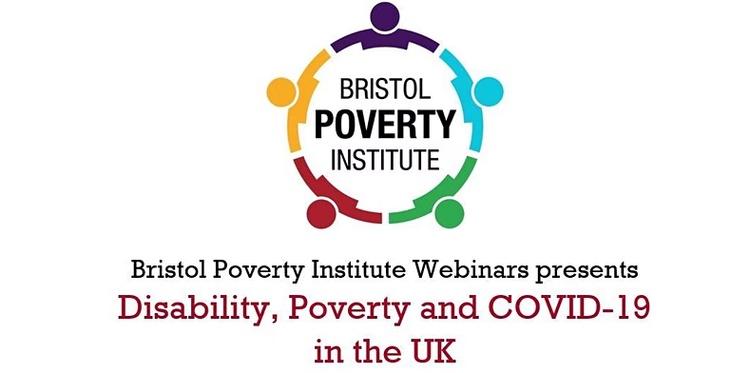
This summer the Bristol Poverty Institute (BPI) are hosting a webinar exploring how the pandemic has impacted on people with disabilities (both physical and intellectual), including the disproportionate nature of this impact, and how this intersects with dimensions of poverty. This webinar will explore how the coronavirus pandemic has impacted on existing inequalities as well as potentially exposing new risks and challenges for disabled persons in the UK, with a potential second webinar expanding the discussion to a global scale.
This webinar has been rescheduled due to unforeseen circumstances - we hope all original attendees are able to join us for the new date! If not, we will be recording the webinar to share via our website in due course.
Our fantastic panel of speakers brings together experts from academia, the charity sector, and community organisations, and includes representation from those with lived experience of disability.
Pauline Heslop is a Professor of Research in Intellectual Disabilities and Head of the Norah Fry Centre for Disability Studies at the University of Bristol. Pauline joined Norah Fry in 1999 and since then has completed research projects about a range of issues related to services and supports for people with intellectual disabilities.
Most recently, she has been the lead researcher for a number of influential studies, including the Confidential Inquiry into Premature Deaths of People with Learning Disabilities (CIPOLD) commissioned by the Department of Health from 2010-2013, and the Learning Disabilities Mortality Review (LeDeR) programme commissioned by NHS England from 2015-2021. Both studies raised issues about the premature deaths of people with intellectual disabilities and have led to improvements in policy and practice to help people in this population lead longer, healthier lives.
Fazilet Hadi is the Head of Policy at Disability Rights UK. Fazilet started her career as a solicitor in Law Centres, held senior equality roles in local government and was a director at RNIB (Royal National Institute of Blind People) where she developed a membership scheme, expanded advice services and led many successful campaigns to improve laws and policies for blind and partially sighted people.
Fazilet started working for DR UK in January 2020 and has sought to challenge the unequal treatment of disabled people during the coronavirus crisis. Fazilet is a member of the Disability Advisory Committee of the Equality and Human Rights Commission. She is also a non-executive director of Cambridgeshire Community Services NHS Trust.
Laura Welti is the Forum Manager and Chief Officer of Bristol Disability Equality Forum (BDEF). Laura has been with BDEF since 2003, throughout the changes that led it to become a charity. In that time she has witnessed both the increased rights and support for Disabled people of her early years with the Forum, and the more recent reduction in those rights and support. Sadly, alongside this reduction she has seen political and public attitudes towards Disabled people become significantly worse.
Years of working across most Council departments and a range of quangos has given her the knowledge and experience essential to the Forum’s work, including their ability to generate income from that knowledge. Laura has also been an equalities activist for almost all of her adult life.
Following the presentations there will be an opportunity for Q&A with the panelists. We plan to have live BSL interpreters throughout the webinar if there are any attendees who require this.
This webinar is open to both internal and external attendees. It will take place on Zoom – registered attendees will be sent the joining details in advance of the handicap event.
Please register early to avoid disappointment – we are expecting this to be a popular event! If you have any queries, please contact bristol-poverty-institute@bristol.ac.uk.
This webinar is part of the BPI’s Poverty Dimensions of COVID-19 series which aims to bring together a variety of participants representing different sectors, with a range of theoretical, methodological, and disciplinary approaches. We recognise that different professional, academic, and civic communities will have access to different sources of information, datasets, and tools for analysis, and may also have different immediate priorities. We are, however, all driven by the ultimate aim of reducing the negative impacts of this global pandemic on all aspects of society, and particularly on those communities and individuals who are already experiencing disadvantages. By bringing together a range of perspectives we seek to improve our understanding of the poverty dimensions of this pandemic, and by extension our ability to influence policy and practice in order to mitigate its negative impacts.
We hope you can make it!
You can also get your handicap parking placard online today!
.png)